Pokemon-Go Has People Moving For Treasures
There is no doubt that the new release of the version of the Pokemon Go game has inspired people to start moving around. According to an article on the website "Heavy.com" titled "‘Pokémon Go’ Number of Downloads: How Many People Are Playing It?" the number of users engaged in playing the game is already reaching into the millions -- WOW. Here is an excerpt describing the results from two independent surveys:
According to The USA Today, earlier in the week, Pokémon Go was reported to have been downloaded at least 15 million times. But other recent data suggests the number is even higher than that.As of Monday, July 11th, the game was seeing about 21 million daily active users, according to Survey Monkey. This means that in terms of daily users, it is the biggest mobile game in U.S. history. For comparison, at its peak Candy Crush reportedly had about 20 million daily active users in the United States.
That is amazing. These numbers are aligned with a common statement that I tell my friends -- which is that if you want to make a movement in the world -- make a video game that motivates that movement. Which is to say that, if a person was interested in making more people interested in science, then producing an "engaging" game that motivates people to learn science is the way to go.
Further, the results (the numbers) show that if the game is popular enough, people will engage in playing for a long time. Again, here is an excerpt highlighting the time spent thus far by players compared to other popular games:
Another impressive piece of data is the fact that many users are spending significantly more time in their Pokémon Go app than they are on Facebook or Twitter. According to Sensor Tower, on Monday, July 11th, the average iPhone user spent 33 minutes in the Pokémon Go app, whereas they only spent 28 minutes in the Facebook app, 18 minutes in the Snapchat app, 17 minutes in the Twitter app, and 15 minutes in the Instagram app.
According to the amount of time reported that have players engaged (walking for a large portion) in the game, players are reaching the minimal amount of exercise needed in a week's duration. Meaning, if a player is engaged in the game for at least 33 minutes a day and plays 7 days a week, counting stopping and capturing "treasures" -- most likely the player is achieving the minimal amount of exercise needed.
Additionally, despite the reported negative effects of the game (distraction, robbery, etc.), there are reports of the game having a positive effect on mental health (depression and anxiety). Tallying up the disadvantages and advantages on a person's health, as of now, the game appears to be beneficial to society thus far.
Here is a picture of one our board members (for our nonprofit organization -- Bikecar101) playing Pokemon Go on the train shown below:
He swears that since the game has come out, he has walked extra laps around his house in order to capture more "treasures". Additionally, the game has captured him while engaging in active transportation (for him, train + bicycle). This is motivating.
Hopefully, more people see such positive benefits to their health as those already playing have. Furthermore, if the game dies out, hopefully, the players will see the benefits of increased physical activity and continue on engaging in more outdoor activities. Stay tuned.
Having a game or a new system motivate indirectly active living is wonderful. As shown above, millions of people are moving. Some of whom probably were inactive before the new game emerged. Another form of indirect motivation that will engage more people into using active modes of transportation is the newly unveiled 'Bike Share' program in downtown Los Angeles by Metro.
Bike Share Indirectly Motivates Active Transportation!
Some readers might not agree with the title of this section. Why would a bikeshare program "indirectly" motivate people to become engaged in active transportation? Let me explain briefly below.
Recently, I took a weekend trip to Nebraska, specifically, visiting family in downtown Omaha. I arrived on a Friday afternoon to meet up with my wife (who had flown in earlier in the week) and my father-in-law. After picking me up from the airport, they notified me that we had a few hours to spare until the next event. Further, they suggested that we walk down by the river that separates Nebraska and Iowa as shown in the picture below:
The walk was great as usual. I needed to stretch my legs after sitting on a rather long flight (I do not fly very often). Of course, I am being silly when I say a long flight from California. Back in my military days, we would fly from South Carolina to Saudi Arabia on a direct flight for 24 hours (very fun) -- with earplugs in and a dark plane. Yeah!
Anyways, on this particular Friday, the weather was great and the walk was too. Along the walk, we noticed that the newly installed Bike Share was installed at various points along the river and dotted throughout the downtown area -- which was super cool. Here is a picture of the Bike Share station in Omaha Nebraska shown below:
I was immediately attracted to the message written on the sign -- which reads "Imagine Better Health" -- super cool. In the future, I imagine more healthcare organizations will utilize Bike Share programs for there "at risk" heart patients (discussions are underway currently). We could not help but try it out. Here are pictures of each of us on bicycles below:
Kayla:
Me -- Mike:
And Steve:
The experience was great. We used the bicycles to return to the car. Ironically, we parked in front of a train museum (an old train station) that had a bikeshare hub just outside. We were able to ride back to the museum and return the bicycles nearly in front of the parking lot where the car was parked.
On a side note: I am frequently asked about my position on the future of bikeshare programs in the Southern California region. Specifically, because I am a co-founder of Bikecar101 -- whose mission is to advocate and educate the public about bicycles on public transit trains. A bikeshare program might seem contradictory to our mission. Let me clear the air now.
We believe that all modes of active transportation are the solution to the future of motivating the public to engage in active transportation. Not any single one outpaces any other. Each will work in concert with one another along parallel lines to motivate active living. There is a time and a place for each mode to be used by each of us.
The trip to Nebraska was a perfect example of a great time for us to try out the bikeshare system. We had a ball riding around. The bicycles were heavier and noticeably different from those that we ride on a daily basis. Nevertheless, having the opportunity to ride around on a bicycle then conveniently return it was great. That was Nebraska, what about downtown Los Angeles?
Bike Share Inspires Active Transportation
After reading the initial account from the LA Times upon the unveiling by Metro of the new Bike Share program downtown on the 7th of July, I was super happy to see how much press the LA Times was giving the program over the next week. Of course, this coverage was on top of the usual stellar coverage of the unveiling by the Los Angeles County Bicycle Coalition. We need the popular news to help us out with spreading the word about the new program. Further, the opportunity to engage in active modes of transportation for tourists, businesses, consumers, etc.
Similar to the release of the PokemonGo game, the new program has the potential to motivate people to engage in active transportation. Additionally, the program has the potential to turn a non-bicycle commuter into a person who chooses to use a bicycle in addition to other modes of transportation to get around town. Why do I believe that to be true?
At first upon hearing the unveiling of the Bike Share program, I was hoping that the program would be successful -- for the purpose of investment into the initial program. Although, after having a weekly conversation with my father (who was born in Santa Monica and is 74 years old), I have a new optimism about the program turning over more people to active transportation.
He was mentioning that the amount of press is great to spread awareness of the program. This he states has been a great problem with motivating all modes of public transportation since he was a child. Awareness is key. Second, he believes that he would jump on a bicycle and try it out if he finds himself near a hub sometime in the future. Additionally, he can easily see himself motivated after riding a Bike Share bicycle to go out and purchase a bicycle to add to his daily routine. Why?
He stated that if he had the opportunity to ride around town and build up a mental library of the amount of time spent traveling from place to place, he would be motivated to try alternative transportation instead of driving. Especially, in hope of relieving stress and elevating his health. Not to mention, coupling a "workout with his commute" (as he stated).
After talking with him, I am convinced that the program could very well result in more residents engaging in active modes of transportation on top of the tourists who choose to try the new system.
Conclusion...
I hope that you will share our optimism and try the system out. At the very least, spread the word about our experiences and motivate others to try to engage in active transportation. Right about now, the advocates of the active transportation world are appreciative of any efforts to motivate residents to engage in a healthier lifestyle -- even if that entails supporting Pokemon Go.
In the future though, we would hope that the seed has been planted and sprouts organically through a responsive engagement on part of the public to utilize these programs that precious tax dollars have been spent on -- for the better of society. Additionally, the influence of friends and family is contagious in making (motivating) changes to our society which result in a more healthier and environmentally friendlier world. Join us and spread the word!
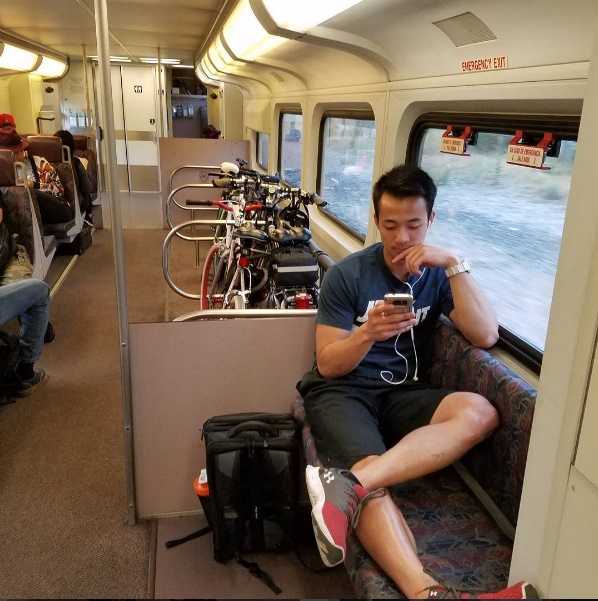
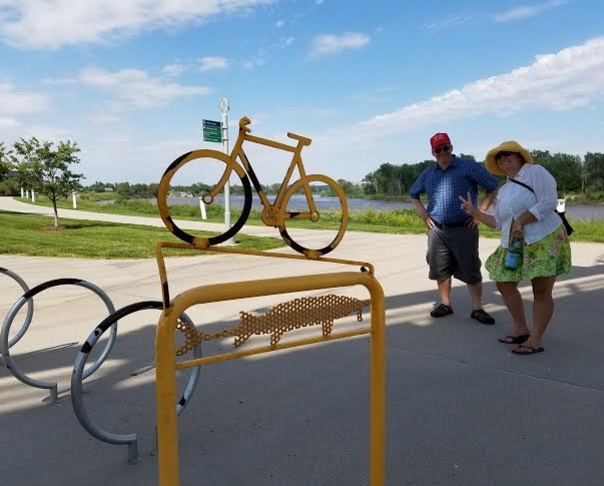
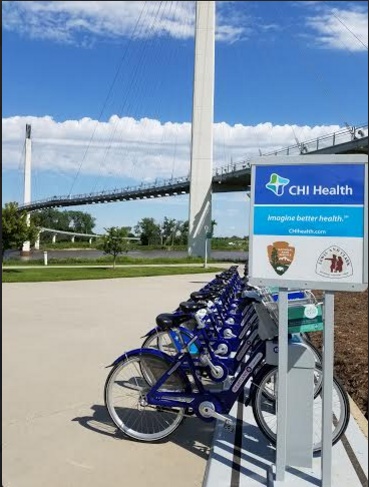
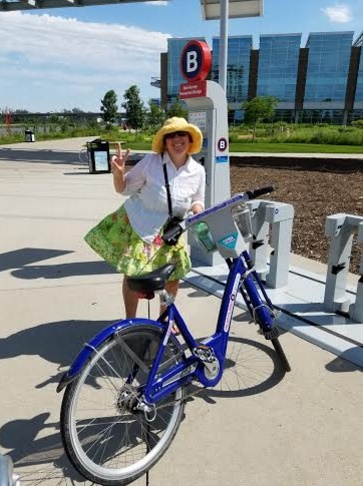
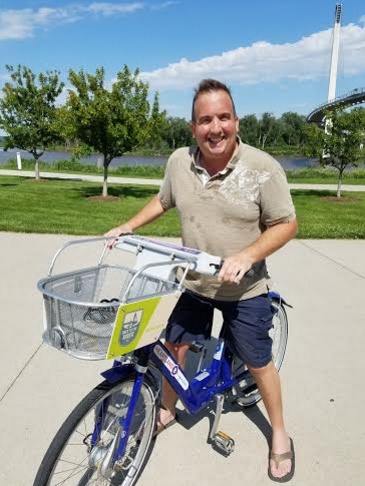
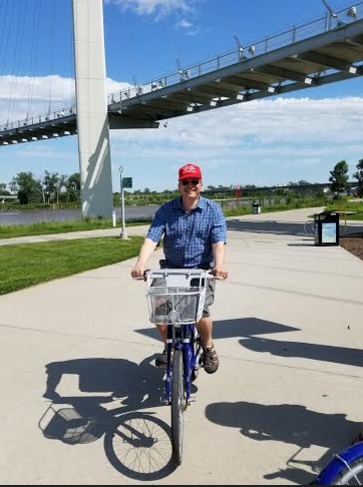
No comments:
Post a Comment